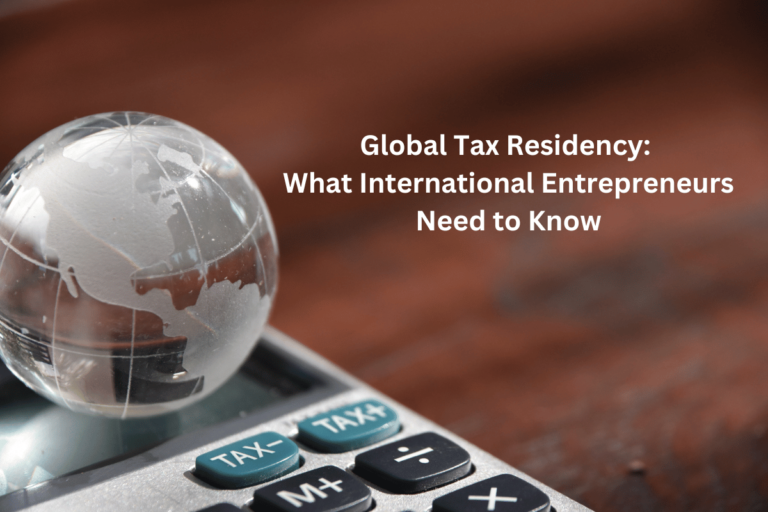Legal Considerations for Digital Nomads: Contracts, Taxes, and More
Being a digital nomad means dealing with a lot of legal stuff. You need to know about contracts, taxes, and how to protect yourself. This guide will give you the key digital nomad legal advice you need.
Introduction to Legal Considerations for Digital Nomads
As a digital nomad, you’ll face many legal issues. These include managing contracts, handling personal risks, and dealing with taxes. Knowing about remote work contract guidelines, tax laws, and how to protect your assets is crucial. This knowledge helps you avoid legal problems and keep your job safe while you travel.
Key Takeaways
- An overview of different legal considerations for digital nomads, including contracts, personal liability, and tax obligations.
- Key contract clauses include responsibilities, payment terms, ownership rights, and restrictions.
- Setting up a corporation can help separate personal liability from business activities.
- Sole proprietorship merges personal and business liabilities but is the default option for many.
- Tax obligations for digital nomads can vary, and professional assistance may be necessary to navigate them effectively.
Understanding Different Types of Contracts
Client Contracts
For clients, it’s crucial to have clear contracts. These should cover what work needs to be done, how payment will be handled, and what needs to be delivered. This protects both sides and makes sure everyone knows what’s expected.
Freelance Agreements
Freelancers need contracts too. These should be clear about what services are offered, when they’re due, and how payment will work. They should also protect your rights to your work and keep your client’s secrets safe.
Service Contracts
For digital nomads who offer ongoing services, service contracts are a must. These set the rules for how well you should perform and what happens if you don’t meet them. They make sure everything is clear and everyone is accountable.
Introduction to Legal Considerations for Digital Nomads
Digital nomadism is becoming more popular. It’s key to know the legal tips for working abroad. This lifestyle is not just a job break; it’s a way to work and travel. We’ll cover the main legal points digital nomads should know.
Digital nomads need to understand different contracts to protect their work. These include client, freelance, and service contracts. Reviewing these carefully helps protect your legal rights for remote workers. Ignoring this can lead to issues like unpaid work and legal problems.
It’s also vital to protect your personal assets. Consider getting liability insurance. Know your tax duties, as most pay taxes in their home country or where they live most of the time. Some might not pay taxes if they earn below a certain amount or live in a tax-friendly place.
Tax rules for digital nomads can be tricky and change a lot by country. They depend on how many days you’re in a country, your job ties, owning property, and investments there. Learning about these and tax treaties can help avoid double taxes and follow the law.
Don’t forget about visa and work permit rules. Each country has its own rules on what work you can do. Make sure to check the visa needs, how to renew them, and the process to keep your work going without issues.
Last, keeping client trust and following data protection laws is key. Use secure ways to share files and keep devices encrypted. Also, protect your ideas and make sure your remote work contracts are clear to keep your legal rights for remote workers safe.
In summary, the digital nomad life is full of freedom and flexibility. But, it also requires knowing the legal stuff to keep your work and life on track.
Understanding Different Types of Contracts
Contracts are key for digital nomads working with clients or offering services. Knowing the different types of contracts helps protect your work and makes sure everyone knows what’s expected. This part talks about important contracts digital nomads should know, like client contracts, freelance agreements, and service contracts.
Client Contracts
Client contracts set the rules for the work between digital nomads and their clients. They cover what needs to be done, when it’s due, and how much to pay. It’s important to be clear about things like how you’ll get paid and who owns the work. This is especially true for digital nomads working across borders.
Freelance Agreements
Freelance agreements are for independent workers. They spell out the details of the job, like what needs to be done and how you’ll get paid. They might also include non-disclosure agreements (NDAs) to keep sensitive info safe. Digital nomads often get legal advice to make sure their freelance agreements are strong and enforceable.
Service Contracts
Service contracts outline the services digital nomads will offer to their clients. They detail what needs to be done, when it’s due, and what’s included in the service. A good service contract sets clear expectations and helps avoid disagreements. By using these contracts, digital nomads can improve their work relationships and protect their interests.
Essential Clauses in Digital Nomad Contracts
For digital nomads, knowing and using key contract clauses is crucial. It helps protect them legally and makes their work clear. Here are some important parts to think about:
Responsibilities
Make sure to clearly list what both sides need to do in the contract. This includes what work needs to be done and what tasks are expected. Being specific helps avoid confusion and fights.
Payment Terms
It’s key to have clear payment terms. These should cover how much to pay, how to send invoices, and when to pay. Being open and clear about these stops disagreements over money.
- Rates: Agreed-upon compensation
- Invoicing Procedures: Clear processes for issuing and submitting invoices
- Payment Schedules: Defined timelines for payments
Ownership and Rights
It’s vital to have clauses about who owns the work and what rights they have to it. This is especially true for creative or special projects. It helps protect everyone’s interests.
- Ownership rights: Determine who owns the completed work
- Usage permissions: Clearly delineate licensing agreements
Restrictions and Non-Disclosure
Add non-disclosure agreements and other rules to keep sensitive info safe. These parts should say how to keep secrets and what you can’t share.
- Confidentiality Agreements: Protect sensitive information
- Non-Disclosure Commitments: Ensure confidentiality
Dealing with these contract clauses for digital nomads can be tricky. Using good negotiation skills and getting legal advice for tricky parts helps. This way, digital nomads can make sure their work agreements fit their lifestyle.
Personal Liability and Asset Protection
As digital nomads move around the world, keeping their personal assets safe is key. It’s not just about avoiding legal trouble. It’s also about making sure their business and personal finances stay separate.
One way to keep personal assets safe is by starting a business entity like a single-member LLC. In the US, this type of entity limits your personal liability. It also lets you pick the best tax option for your business.
Creating an LLC also makes a digital nomad look more professional. It’s important when working with clients from other countries. Plus, it keeps your personal info private.
Having a clear line between personal and business assets is vital. This way, digital nomads don’t risk their personal money because of their business. Many digital nomads, especially those outside the US, use LLCs to follow tax laws and avoid double taxation.
Setting up an LLC is a smart move for digital nomads. It lowers legal risks and keeps personal assets safe. This lets them grow their business without worrying about personal liability.
Choosing the Right Business Entity
Choosing the right business entity is key for digital nomads. It affects legal protections and taxes. This section looks at corporations, sole proprietorships, and LLCs. It’s important to know the pros and cons of LLC for digital nomads to decide wisely. Let’s dive into these options.
Corporation
Corporations are legal entities that protect your personal and business assets. They shield you from personal liability. But, they need more paperwork and reporting, which can be time-consuming and costly.
Sole Proprietorship
A sole proprietorship is easy to start for digital nomads at the beginning. It has few rules and is simple to set up. But, it doesn’t protect your personal assets if the business has legal issues or debts.
LLC (Limited Liability Company)
Many digital nomads choose LLCs for their flexibility and benefits. LLCs protect your personal assets from business debts. They mix the perks of corporations and sole proprietorships.
Looking at the pros and cons of LLC for digital nomads, LLCs are less formal than corporations and have pass-through taxation. This means you report business income on your taxes, avoiding double taxation. Yet, they need some filings that vary by state, which might be tricky for those always on the move.
For digital nomads, knowing your host country’s laws is crucial. LLCs are great for those wanting flexibility and protection. Talking to legal and tax experts who know about expat matters can help you pick the best option for you.
Tax Obligations for Digital Nomads
For digital nomads, dealing with taxes can be tricky. Your taxes depend on if you’re a sole proprietor, LLC, or corporation. Your country of living, the income you make, and your business setup matter a lot.
- Simplifying Social Security Contributions: In some places, social security taxes are easy to understand. For example, in the U.S., self-employment tax is 15.3%. This includes 12.4% for social security and 2.9% for Medicare.
- Flat Tax and Progressive Tax Systems: Bulgaria has a simple tax of 10% on all income. Portugal, on the other hand, has a tax that goes from 14.5% to 48% based on how much you make and where you live.
- US State Taxes: Picking the right state to live in can save you a lot of money. Nomads could save 5-20% of their income by living in states like South Dakota, Texas, or Florida. These states don’t have state income tax.
The Foreign Earned Income Exclusion (FEIE) and the Foreign Tax Credit (FTC) help digital nomads avoid paying taxes twice. For the 2024 tax year, the FEIE lets you exclude up to $126,500 from U.S. taxes. You can also use FTCs to lower your U.S. taxes by the amount you paid to foreign governments.
Remote workers need to know about international tax treaties and agreements too. These agreements stop you from being taxed twice and make sure you’re not taxed unfairly by more than one country.
It’s important for digital nomads to keep up with their tax rules. Not following these rules can lead to fines or tax problems later. Using tax experts can help manage your taxes well, making sure you follow the rules for remote workers. So, digital nomads should always learn about tax changes and get advice when needed.
International Tax Treaties and Agreements
As a digital nomad, dealing with international taxes can be tough. But, knowing about tax treaties for digital nomads is key to managing your taxes well and avoiding double taxation. These treaties help decide how your income is taxed, so you’re not taxed twice on the same money.
Countries have Double Taxation Agreements (DTAs) to prevent double taxation. They decide if taxes should be paid where you live or where you earned the money. For example, if you work in Germany but live in Spain, the DTA between Germany and Spain will tell you what taxes you owe.
It’s important to know the 183-Day Rule. This rule says if you spend over 183 days (about six months) in a country, you might be considered a resident there. This could mean you have to pay taxes on money you earn worldwide. Knowing this helps digital nomads plan their time better.
Where you earn money affects your taxes too. Salaries are taxed where you live. If you have a business, it might be taxed where you registered it, depending on the treaty. Things like investments and digital assets can also affect your taxes, based on where they are.
Several things decide if you have to pay taxes:
- Physical presence, counted by the days you spend in a country.
- Permanent ties, like owning property or having family there.
- Social presence, like being a member of clubs or organizations.
- Income sources, looking at where you earn your money and what you do for work.
Getting help from a tax expert is usually a good idea to understand these rules. They can help you use treaties to your advantage. With the right guidance, you can avoid paying taxes twice and follow the tax laws of different countries.
Understanding Citizenship-Based Taxation for US Digital Nomads
US digital nomads face complex tax rules because of citizenship-based taxation. Even if they work or live abroad, American citizens must file taxes in the US. They can use the Foreign Earned Income Exclusion (FEIE) and the Foreign Tax Credit (FTC) to lower their taxes.
US Tax Filing Requirements
US digital nomads must file taxes every year. They have to file if they earn over a certain amount, no matter where they live. This can lead to paying taxes twice if not managed well.
Self-Employment Taxes
If digital nomads work for themselves or as freelancers, they need to pay self-employment taxes. These taxes are 15.3% of what they earn. It’s key to include these taxes in their budget.
Foreign Earned Income Exclusion (FEIE)
The Foreign Earned Income Exclusion (FEIE) for digital nomads lets them exclude up to $126,500 of income earned abroad. They must spend at least 330 days abroad in a year or be a resident in another country for a year. This rule applies to earned income like salary and consulting fees, but not to unearned income like dividends.
Foreign Tax Credit (FTC)
The Foreign Tax Credit (FTC) helps digital nomads avoid paying taxes twice. By reporting foreign taxes and using Form 1116, they can lower their US taxes. It’s wise to get help from tax experts like Taxes for Expats or Online Taxman to avoid mistakes and save money.
Visa and Work Permit Considerations
The world of digital nomad visas and work permits is complex. Over 20 countries now offer these visas. It’s key to know the work visa needs for digital nomads to work legally.
Each country has its own rules. For example, Estonia wants a monthly income of €3,504 for short stays. Malta asks for €2,700. Mexico requires over $1,620 a month, tax-free.
Portugal wants a monthly income of €600 from non-EU nationals. Visa lengths vary from six months to two years. These visas often have income and tax rules to ensure nomads can support themselves.
Meeting work visa needs for digital nomads does more than follow the law. It also keeps your legal work status for remote work solid.
Many countries let you work remotely for 90 to 180 days without a visa. For longer stays, you might need a digital nomad visa. Long-term stays could require a work or residency permit. Sometimes, you’ll also need to think about taxes to avoid breaking laws.
Legal Nodes helps digital nomad entrepreneurs with taxes across different places. This is crucial when working in various countries with their own rules.
Non-US citizens working remotely for American companies must follow local visa laws and pay taxes there. Knowing these rules is key for a smooth digital nomad life and staying legal.
Living and Working Abroad: Legal Rights and Responsibilities
More people are working remotely from other countries. It’s important to know the laws and healthcare needs of these places. Digital nomads must follow the laws of the countries they work in and take care of their health.
Local Employment Laws
Understanding local employment laws is key for remote workers. Each country has its own rules. Not following these can lead to big problems.
- Work permits or visas: Most countries need a valid work visa. Some places like Germany, Iceland, and Portugal offer special digital nomad visas.
- Tax obligations: If you stay in a country over 183 days a year, you might have to pay local taxes. Look into agreements that can help avoid paying taxes twice.
- Permanent establishment: Accidentally setting up a permanent base in a country can lead to more rules and taxes for both employers and employees.
Healthcare and Insurance Requirements
Healthcare for remote workers is often overlooked but it’s very important. Most U.S. health plans don’t cover people living in other countries. It’s key to know and follow the health rules of the country you’re in. Here are some things to think about:
- Health insurance: Make sure you have good health insurance. Some countries ask for proof of insurance as part of the visa process.
- Workers’ compensation: Check if your insurance covers you abroad. You might need a special policy for this.
Companies and workers can protect themselves with a digital nomad policy. This makes sure everyone follows the laws and takes care of their health. Such policies help manage risks, keep good workers, and follow the law.
Resources for Legal Advice and Professional Support
Being a digital nomad can be tough when it comes to legal matters. But, getting professional advice can make things easier. With about 45% of digital nomads struggling to figure out their tax status, finding the right help is crucial. Let’s look at some great resources for legal and tax advice for digital nomads and freelancers.
Legal Services
Hiring a lawyer can be a big help with things like contracts, visa rules, and personal safety. Since 38% of digital nomads get in trouble for not following the rules, it’s smart to work with lawyers who know international law. Companies like GoGlobal offer services like Recruit & Hire and IC Solutions to make sure you’re on the right track and avoid mistakes.
Tax Consultants
Dealing with taxes can be tricky, and only 27% of digital nomads get help from tax pros. Tax experts give advice on managing money earned abroad and understanding tax laws in different places. Since 63% don’t know about tax benefits in some countries, pros can help you save money, figure out foreign tax credits, and stay legal.
Online Communities
Online groups are a goldmine for support and advice from others who get it. Sites like Nomad List and The Remote Work Tribe have forums, Q&A, and tips from other nomads. For those 72% unsure about what expenses you can deduct, these groups offer real help and boost your confidence in living the digital nomad life.
Conclusion
Digital nomadism has changed how many professionals live and work. From 2019 to 2021, the number of digital nomads grew by 112%. Now, 15.5 million Americans are part of this community. They spend about $1,400 each month in the countries they visit.
It’s crucial for digital nomads to follow the law to keep their lifestyle safe. They need to understand contracts, taxes, and local laws. This means knowing about responsibilities, payment terms, and rights to their work.
The legal rules for digital nomads are complex. They need to set up businesses like corporations or LLCs to protect their personal stuff. This helps keep their personal and work life separate.
Getting taxes right is also key. US digital nomads face citizenship-based taxation or international tax deals. There are over 3,000 tax treaties worldwide. These help digital nomads avoid paying taxes twice and follow global tax rules.
By getting these legal things right, digital nomads can make their life better and keep their freedom. They can enjoy their travels and work without legal worries.
Source Links
- Legal Things For Digital Nomads: Complete Guide
- Digital Nomad Taxes: 8 Things You Need to Know
- Navigating the World of Digital Nomad Taxes: A Comprehensive Guide – doola: Start your dream US business and keep it 100% compliant
- Digital Nomad Taxes: How to Legally Travel & Work Remotely
- What Are The Key Legal Considerations For Digital Nomads? – Liberty Nomads
- Legal Protections for Digital Nomads: Understanding Your Rights Abroad
- The employer’s guide to managing digital nomads
- Digital nomad tax guide | TFX
- How to Be Compliant as a Digital Nomad
- Essential Guide to Digital Nomad Contracts – Labour Laws UK
- Legal Things to Consider Before Becoming a Digital Nomad
- How Digital Nomads and Freelancers Can Take Advantage of US LLCs
- Why Digital Nomads Should Form an LLC; Your Guide to Company Formation in the US
- Digital Nomad Taxes: What Employers Need to Know
- Digital Nomad Taxes: A Complete Guide for US Nomads
- How to Start an LLC as a Digital Nomad: What to Know
- Tax Breaks for American Nomads and Expats [Guide + Examples]
- International Taxes For Digital Nomads: Complete Guide
- Digital Nomad Taxes: Everything You Need To Know
- The Ultimate Tax Guide for American Nomads & Expats (2024)
- US Taxes for Digital Nomads: A Guide
- How to Choose a Residence Country as a Digital Nomad Entrepreneur
- Can Non-US Citizens Work for US Companies and Live Abroad?
- Embrace Digital Nomads With A Documented Policy – StrategicCHRO360
- Working Remotely from Another Country: Key Things to Know | EPAM Anywhere
- Working Abroad: A Guide to Remote Work Taxes
- Taxes for digital nomads – Orience
- 10 Tips For Managing Digital Nomads | GoGlobal
- An Employer’s Guide on How To Tax Your Digital Nomads
- Digital Nomadism and Taxation: Navigating the Evolving Landscape
- There Must Be Fifty Ways to Tax a Digital Nomad: Does Taxation Constrain the Geographical Freedom of the Digital Nomad?







